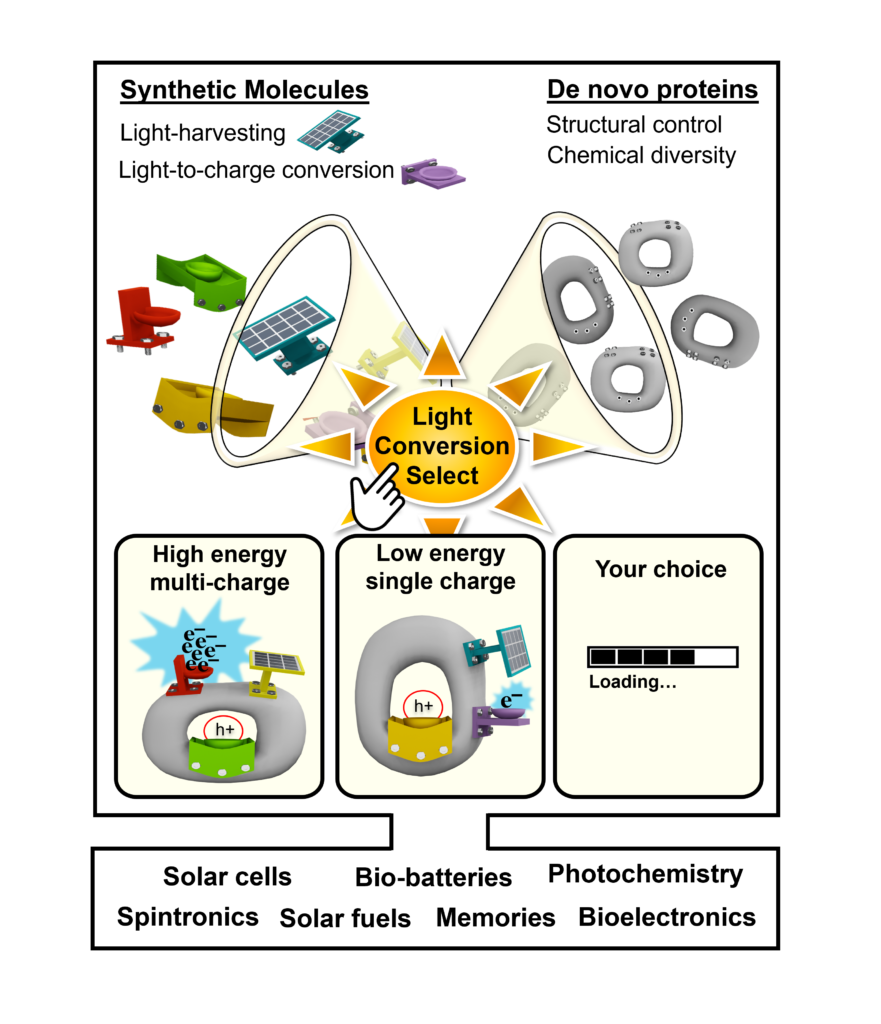RESEARCH PROGRAMMES
P1: Organic nanosystems for light harvesting and energy conversion
RESEARCH SUPERVISOR(S)
Dr Sara H Mejias
Research Group website: https://www.nanociencia.imdea.org/es/bio-engineered-nanophotonics/home
RESEARCH TOPIC DESCRIPTION
A sustainable future starts with efficient light-energy conversion. In the last decades, molecular systems have been used to study the principles of light-induced charge separation for photocatalysis, solar fuels, and solar cells, among others. The huge challenge is, however, to demonstrate photoinduced charge-separated states with energy and stability on-demand for each application, and new game-changing strategies are required to meet this challenge. Nature gives an incredible lesson by transforming light energy into a charge-separated state with near-perfect quantum efficiency. The energy conversion efficiency arises from specific interactions between chromophores and the protein molecular surrounding. These interactions change the energy landscape of the chromophores affecting the dynamics of the excited states and energy transfer/relaxation pathways by, for example, favouring charge transfer pathways while quenching non-desired recombination and photodegradation decays.
This research aims to take advantage of the principles observed in Nature to drive on-demand charge separation. In particular, it aims to use engineered proteins as photoactive bio-hybrids for applications such as photocatalysis, light energy storage, or similar or to develop strategies that give access to fundamental knowledge on light-induced charge separation in protein-based photosystems. Overall, the proposed projects will provide a toolbox with which to harness the full power of light for human-made innovations and be a landmark in the field of bio-tailored nanophotonics.
POSITION DESCRIPTION
The candidate will work on an interdisciplinary project at the interface of spectroscopy, physical chemistry, molecular biology, and nanoscience. The bio-hybrid synthesis will be done by using molecular biology methods, while pump-probe spectroscopy will be used to study their exciton relaxation dynamics. The candidate will be enrolled in the department activities, including our internal seminar program, will have the opportunity to attend international conferences, and, in case of interest, will be able to supervise students with a previous acceptance of the PI.
A typical background for the position would be a researcher with a PhD in Chemistry, Physics, material science, or similar and with experience in bio-hybrid synthesis and characterization. The candidate will have experience in spectroscopy techniques and data analysis. Besides, the candidate is expected to have a high level of English, the ability to work in a team and show communication skills.
PARTNER ORGANIZATIONS
Based on the research proposal, we will collaborate with:
- Biobased solar fuel generation – Prof. Starla Glover, Uppsala University, Sweden.
- Electron paramagnetic resonance – Prof. Wesley Browne, Groningen university, The Netherlands.
- Protein Nuclear Magnetic resonance – Prof. Beat Vogeli, University of Colorado, US.
We will also collaborate with groups experts in modelling for bio-hybrid folding stability and electronic transitions calculation.

